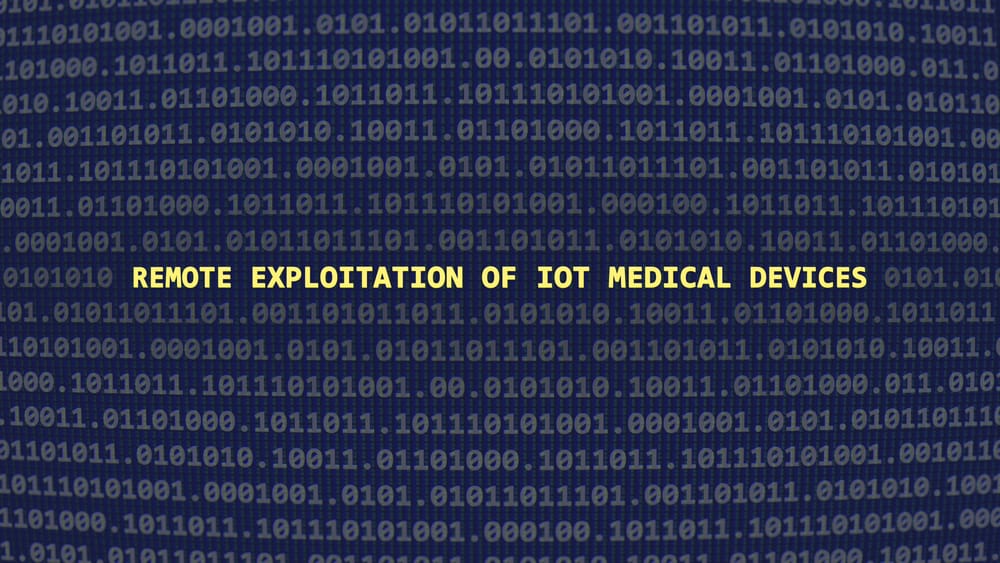Cyber Attacks on Healthcare: Threats to Medical Devices, EMRs, and Cloud
Healthcare’s weakest link is now digital. As HealthTech evolves and Medical Devices become connected through cloud-based platforms and electronic medical records (EMRs), the sector’s dependence on digital infrastructure has exposed it to unprecedented cyber risks. For CEOs, Boards, and Chairpersons, cybersecurity has moved from being an IT concern to a governance priority—and a critical element of risk management, investor confidence, and succession planning.
A new era of vulnerability in HealthTech
HealthTech innovation is accelerating, but so are threats. Cloud-based diagnostic systems, AI-enabled imaging platforms, and interconnected Medical Devices offer efficiency and data precision, yet each connection expands the attack surface. Cybercriminals no longer target hospitals alone; they are infiltrating the supply chain—targeting devices, data centers, and even clinical software vendors.
Boards understand that such attacks carry existential risk. Beyond financial losses, the implications include patient safety, regulatory penalties, and reputational damage. Chairpersons emphasize that cyber preparedness is now an enterprise-level responsibility. CEOs must ensure that recruiting for leadership roles—especially CIO, CTO, and Chief Information Security Officer (CISO)—aligns with broader governance and succession frameworks.
The Board’s role in cybersecurity governance
Regulators and investors are increasingly holding Boards accountable for cybersecurity lapses. Governance committees must ensure that cyber resilience is integrated into corporate strategy. Recruiters confirm that executive search mandates in HealthTech and Medical Device companies now routinely include cybersecurity expertise as a non-negotiable requirement for CXO positions.
Chairpersons note that cybersecurity is no longer just about defense—it’s about leadership visibility. Boards are expected to review security posture quarterly, oversee response protocols, and verify whether leadership pipelines include successors capable of managing digital crises. Executive search partners are instrumental in identifying leaders with both technical fluency and crisis management capability.
Medical Devices: the frontline of digital risk
Connected Medical Devices—such as insulin pumps, imaging scanners, and implantable cardiac monitors—are among the most targeted assets in healthcare. Cyber attackers see them as entry points to larger systems that store patient data and clinical IP. A single compromised device can disrupt hospital operations or trigger cascading system failures.
For CEOs and investors, this exposure transforms cybersecurity into a valuation factor. Private equity and venture capital firms conducting diligence in HealthTech now examine not only product pipelines but also cybersecurity frameworks. Boards that fail to demonstrate governance over device security may face reduced investor confidence. Chairpersons therefore stress that leadership hiring must integrate cyber competence at every level—from engineering to executive management.
EMRs and cloud infrastructure: the new attack surface
Electronic medical records are a cornerstone of modern HealthTech, yet they are also prime targets for cyber extortion. The migration of EMRs to cloud systems has created new efficiencies but introduced vulnerabilities across storage, access, and interoperability layers.
Recruiters observe that healthcare organizations are increasingly seeking CXOs who understand both digital transformation and cybersecurity risk. The next generation of HealthTech leadership must be fluent in hybrid cloud architecture, regulatory compliance, and vendor management. Executive search firms play a crucial role in sourcing this talent globally, ensuring that Boards can navigate the delicate balance between innovation and protection.
Chairpersons recognize that succession in these roles is equally vital. The departure of a CISO or CTO without a ready successor can paralyze response capability during an active breach. Succession planning, therefore, is now viewed as a security measure—not just a governance formality.
Why recruiting cyber-literate executives matters
Recruiters emphasize that hiring for cybersecurity competence goes beyond technical roles. CEOs must be able to interpret security metrics, understand threat intelligence, and make rapid decisions under uncertainty. Boards expect Chairpersons to evaluate executive readiness not only for growth but also for crisis scenarios.
Executive search partners specializing in HealthTech and Medical Devices now focus on leadership profiles that combine domain expertise with digital awareness. These leaders strengthen investor trust, mitigate regulatory risk, and ensure operational continuity under attack. Boards that integrate recruiting into cybersecurity governance demonstrate maturity that resonates with both investors and regulators.
Strategic perspective for Boards and CEOs
Healthcare’s digital transformation has outpaced its defenses. For CEOs, Boards, and Chairpersons, the challenge lies not only in technology but in leadership. Recruiting cyber-literate executives, embedding succession into governance, and aligning cybersecurity strategy with investor expectations are now business imperatives.
For additional insights on leadership strategies and emerging HealthTech trends, visit NextGen’s Industry News.
Cyber resilience begins with leadership. Boards that align executive search, succession, and governance with digital defense will secure not only their systems—but their future.
Threats to Medical Devices, EMRs, and Cloud
Case studies: when HealthTech becomes a target
The healthcare sector is now one of the top three global targets for cybercrime. Several recent incidents highlight how deeply these threats cut across Medical Devices, EMRs, and cloud infrastructure. In one high-profile case, a HealthTech manufacturer of connected imaging systems suffered a ransomware attack that disabled diagnostic operations across multiple hospitals. The breach originated from outdated firmware in a connected device—exposing both data and patient safety to risk.
Boards watching these events recognize that the stakes are no longer hypothetical. Cyber incidents now cost HealthTech companies tens of millions in remediation and lost investor confidence. Private equity firms confirm that cybersecurity maturity now ranks alongside clinical validation in their diligence models. Recruiters add that Boards increasingly demand CEOs and CXOs capable of managing both product innovation and digital defense simultaneously.
Recruiting cyber leadership for complex ecosystems
As the HealthTech ecosystem grows in complexity, Boards must recruit leaders who can navigate cybersecurity as both a technical and strategic function. Chairpersons emphasize that digital resilience starts with leadership alignment across IT, R&D, and governance.
Executive search firms are responding by integrating cybersecurity metrics into candidate evaluation. Recruiters identify CEOs, CTOs, and CISOs who understand HealthTech’s regulatory landscape—HIPAA, FDA premarket cybersecurity guidelines, and EU MDR requirements—and can operationalize compliance. This dual capability reassures investors that the organization can innovate safely without jeopardizing data integrity or regulatory standing.
Boards also value recruiters who can assess leadership chemistry between technical and commercial executives. Cyber resilience fails when CXOs operate in silos. Recruiters help build teams where the CEO, CTO, and CISO collaborate rather than compete—ensuring that security becomes a shared accountability rather than a technical afterthought.
Boardroom visibility and investor scrutiny
Cybersecurity is no longer confined to the IT agenda. It now occupies a permanent place on Board meeting calendars. Chairpersons report that investors increasingly request direct access to CISOs during diligence to evaluate governance maturity. Boards unable to demonstrate structured oversight risk losing funding or facing valuation discounts.
Recruiters confirm that Chairpersons who treat cybersecurity as a leadership priority—not a compliance issue—set the tone for investor trust. They emphasize that private equity firms, particularly those active in HealthTech and Medical Devices, now expect Boards to produce clear documentation of leadership readiness for cyber incidents. Boards that lack this transparency face longer diligence cycles and tougher term sheet negotiations.
This trend is reinforced by global regulators. In the U.S., the SEC’s cybersecurity disclosure rules now require Boards to publicly report material breaches and outline risk management oversight. For Chairpersons, this means that cybersecurity competence within the executive team is not optional—it is a fiduciary duty.
The Medical Device challenge: securing life-critical systems
Medical Devices present unique cybersecurity risks. Unlike traditional IT systems, devices operate in regulated environments where updates can be constrained by validation requirements. A single vulnerability can compromise both data and patient safety. Boards must therefore ensure that leadership teams understand device lifecycle management, patch policies, and network isolation.
Recruiters point out that few CEOs in HealthTech possess deep cybersecurity literacy. This gap has made the role of executive search critical in identifying hybrid leaders—those who can translate complex device engineering into strategic governance language. Chairpersons who recruit these profiles early establish credibility with regulators and investors alike.
Investors now demand that device manufacturers integrate cybersecurity into design rather than as a post-market control. Boards that embed this philosophy into recruiting and succession frameworks create defensible governance structures that stand up to regulatory scrutiny and market expectations.
The cloud paradox: innovation and exposure
Cloud migration has become inevitable for HealthTech, enabling scalability and AI-driven analytics. Yet this same evolution introduces dependency on third-party platforms and cross-border data exposure. The paradox is clear: the same cloud infrastructure that powers growth can amplify risk.
Recruiters report that Boards are increasingly prioritizing CXOs with experience in secure cloud transformation. CEOs who can balance agility with compliance gain investor trust faster than those who prioritize speed alone. Chairpersons emphasize that recruiters must identify leaders fluent in both digital strategy and risk management, ensuring that HealthTech innovation does not come at the cost of exposure.
Strategic perspective for Boards and CEOs
HealthTech’s digital frontier is expanding faster than its defenses. Boards and CEOs must view cybersecurity not as a cost center but as a leadership function integral to governance and investor confidence. Recruiting for cyber-literate executives, embedding succession frameworks, and maintaining transparency with investors are no longer optional—they are essential to business continuity.
For further insights on cybersecurity governance, leadership recruiting, and resilience in HealthTech, visit NextGen’s Industry News.
In an era where data equals trust, the most valuable asset in HealthTech is not code or cloud capacity—it is leadership capable of protecting both.
About NextGen Global Executive Search
NextGen Global Executive Search is a retained firm focused on elite executive placements for VC-backed, PE-owned, growth-stage companies and SMEs in complex sectors such as MedTech, IoT, Power Electronics, Robotics, Defense and Photonics. With deep industry relationships, succession planning expertise and a performance-first approach to recruiting, NextGen not only offers an industry-leading replacement guarantee, they also help CEOs and Boards future-proof their leadership teams for long-term success. They also specialize in confidentially representing executives in their next challenge.














